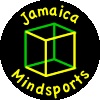Mindsports Jamaica: Difference between revisions
| [unchecked revision] | [unchecked revision] |
No edit summary |
mNo edit summary |
||
| Line 19: | Line 19: | ||
{| style="border: 0; margin: 0;" cellpadding="3" | {| style="border: 0; margin: 0;" cellpadding="3" | ||
| valign="top" | | | valign="top" | | ||
</div> | </div> | ||
Revision as of 19:45, 20 January 2013

Ascot High School, Portmore Jamaica, is undertaken a pilot program teaching mind sports to Jamaican youth. The program is led by Kevin Wallen, Maurice Ashley and Charles Nesson.
Nesson is the William F. Weld Professor of Law at the Harvard Law School and Founder and Faculty Co-Director of the Berkman Center. Ashley is an international chess Grandmaster, author, educator and ESPN commentator who has recently been made a joint fellow at Harvard and at the M.I.T. Media Lab.
The Mindsport Research Network is an outgrowth of their work on the Board of the United States Mind Sports Association. It was founded to study strategic thinking through the study of strategic games, and to enhance cognitive and life skills through curriculum development and play. It fits in well with another initiative Nesson started at Berkman called The Jamaican Project, whose mission is the exploration of restorative justice, prison reform, and Jamaican independence via selfexpression,learning and entrepreneurship.
To that end, Nesson is working with Jamaican native and Berkman fellow Kevin Wallen, and consulting with Dr. Tamika Benjamin of the Ministry of Education to teach mind sports at Ascot High School.
Mind sports are strategic games like dominoes, checkers, chess, and Go. We call them sports —not games— because the matches embrace disciplined training, cooperation, competition and fair play. Children learn best in play; mind sports create an environment where elements of arithmetic, algebra, geometry, probability, logic and reasoning are mastered by doing (as opposed to a rigid classroom system of lecture and rote learning). The zest to best one’s opponents elegantly reinforces numeracy in a manner that is inevitable, painless and fun.
|
|